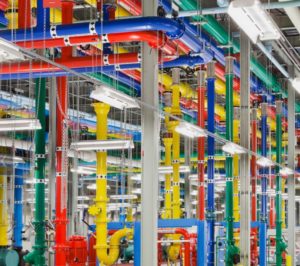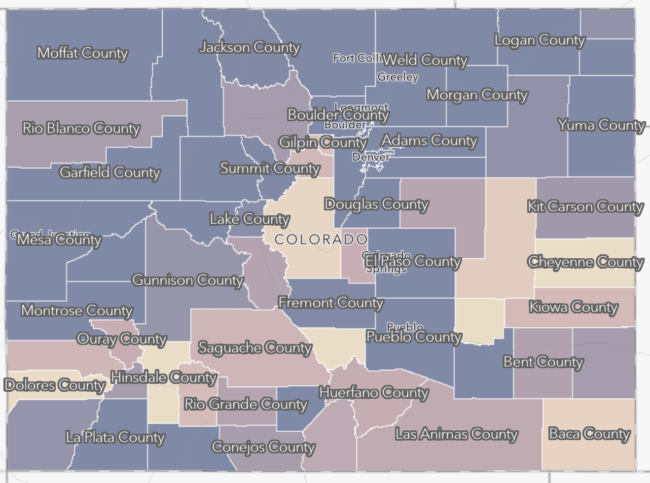
U.S. Senate
See Full Big Line
(D) J. Hickenlooper*
(R) Somebody
80%
20%

Governor
See Full Big Line
(D) Phil Weiser
(D) Joe Neguse
(D) Jena Griswold
60%
60%
40%↓

Att. General
See Full Big Line
(D) M. Dougherty
(D) Alexis King
(D) Brian Mason
40%
40%
30%

Sec. of State
See Full Big Line
(D) A. Gonzalez
(D) George Stern
(R) Sheri Davis
50%↑
40%
30%

State Treasurer
See Full Big Line
(D) Brianna Titone
(R) Kevin Grantham
(D) Jerry DiTullio
60%
30%
20%

CO-01 (Denver)
See Full Big Line
(D) Diana DeGette*
(R) Somebody
90%
2%

CO-02 (Boulder-ish)
See Full Big Line
(D) Joe Neguse*
(R) Somebody
90%
2%

CO-03 (West & Southern CO)
See Full Big Line
(R) Jeff Hurd*
(D) Somebody
80%
40%

CO-04 (Northeast-ish Colorado)
See Full Big Line
(R) Lauren Boebert*
(D) Somebody
90%
10%

CO-05 (Colorado Springs)
See Full Big Line
(R) Jeff Crank*
(D) Somebody
80%
20%

CO-06 (Aurora)
See Full Big Line
(D) Jason Crow*
(R) Somebody
90%
10%

CO-07 (Jefferson County)
See Full Big Line
(D) B. Pettersen*
(R) Somebody
90%
10%

CO-08 (Northern Colo.)
See Full Big Line
(R) Gabe Evans*
(D) Yadira Caraveo
(D) Joe Salazar
50%
40%
40%

State Senate Majority
See Full Big Line
DEMOCRATS
REPUBLICANS
80%
20%

State House Majority
See Full Big Line
DEMOCRATS
REPUBLICANS
95%
5%
 June 26, 2023 02:36 PM UTC
June 26, 2023 02:36 PM UTC 17 Comments
17 Comments



The war on rural Colorado continues. The sad thing is, some dolt like Jerry Sonnenberg says it, and people in rural Colorado believe it. When will they learn that Republicans don't do shit for them?
My bad NOVGOP. I posted without seeing yours first!
We enjoy fantastic broadband in Yuma County (and the entire service territory of Plains Cooperative Telephone Association) thanks to the grants and infrastructure programs of the Obama/Ritter era.
But, yeah: War!!!
Great minds think alike Mr. Bowman
So this is what “War on Rural Colorado” looks like?
It looks like rural conservatives not being able to access all the porn they want. 😉
Yep
Unfortunately, most of those who are among the most impacted by this move will not be able to read about it — in part due to the lack of broadband coverage itself, and in part due to the editorial choices of many of the media companies with the most pervasive presence on the plains.
This would be a good time for the state party to pay for some guest editorials in the counties affected.
Adam Frisch's staff should be writing those 2024 ads now.
Rural Broadband – Boebert voted NO!
Community Health centers and all of the other goodies in the omnibus bill:
Boebert voted NO!
But she tried to take credit for it, anyway….
^^^THIS^^^
From Frisch campaign after I shared this article with Adam;
" Already on our socials and we will keep pushing it! Thanks for your email."
Tonight, Heather Cox Richardson's Letter from an American led with:
Yep … Red & Blue states all deserve to be a part of the common American community, with citizens able to equitably participate in our economy.
Dear Boebs,
Here’s hoping that god might someday direct you towards understanding that twenty-first century infrastructure won’t be largely about building gun ranges, border walls, oil pipelines, or installing golden toilets.
Isn’t it ironic that 100% of Ttump’s bigly infrastructure efforts resulted in building just a couple of miles of laughably defective fencing and a bigly pile of boxes filled with classified secret documents in a basement shower stall?
hmm…too late, and too little….but good for the Dems…DMEA, our rural electric co-op, did for us what no political person has done…in order to get high speed internet to my house, I had to first help rid this area of a government installed monopoly of a cable company…yep…there is a lot more to the story, but we had to first vote on a bill that removed the monopoly….then the co-op had to deal with other types of regulation that have been in place to protect the monopoly…a long process…then the phone company had to be dealt with…right of way access issues…etc…but after about five years, all of the legal roadblocks were removed, and a three hundred dollar up front cost, a lot of calls to installers, and I now have about the fastest internet that I can use…but we, as a community, had to fight the corporate influence and political corruption to do it, but we did…so, yeah…good for the rest of Colorado…
Once again, the visionaries at DMEA come through for their customers and their community.👍👍
Power ( and affordable fast internet) to the people! Good on you and DMEA, Sunmusing.
DMEA is one of the finest REA’s in America. They are the embodiment of the cooperative principles. I’m dating myself, but not for them we (members of Tri-State G&T) would have had the multi-billion dollar Holcomb, KS coal plant boondoggle tied around our neck. Forever grateful for their authentic leadership.